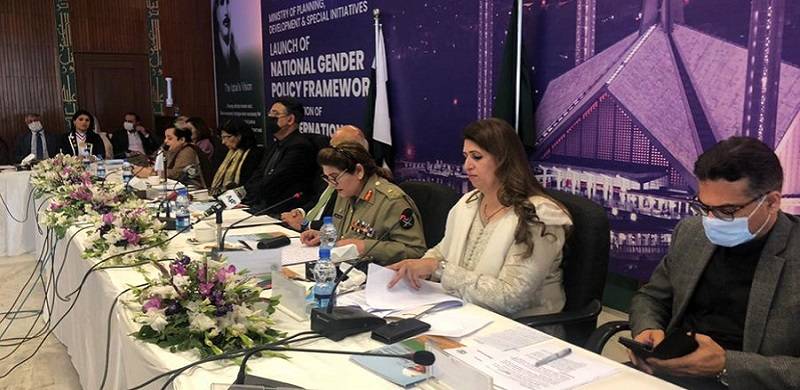
The Ministry of Planning, Development and Special Initiatives has launched a National Gender Policy Framework to empower and ensure equal rights for women, acknowledging the gender inequality present in the country at a launch ceremony on International Women's Day.
The planning ministry issued a statement acknowledging, “the provision of enabling environment is prerequisite for equal participation of women in economic activity that is a linchpin in the three growth strategy and SDGs.”
Federal Minister for Planning and Development Asad Umar highlighted the need for more legislation and said that "If a person doesn't feel protected then he/she cannot work to the best of their potential."
"Our country cannot progress unless the women are educated," he stated, adding that "enrolment of girls in schools is very low as compared to boys and the dropout rate is increasing with each passing day."
Furthermore, the minister said that a stronger local government would offer more opportunities for women from the lower middle class and middle class to participate in politics.
"When you devolve powers at the local level, it creates a balance and an opportunity for those who are not a part of the traditional power structure," the minister concluded.
The government's gender framework will have to contend with Pakistan's consistently low rankings and metrics in the realm of female empowerment. Female labour force participation in Pakistan is low at 25 per cent. Female literacy rate hovers around 50 per cent, with some studies estimating that only 64 per cent of women between the age of 15 to 24 in Pakistan can read and write.
The planning ministry issued a statement acknowledging, “the provision of enabling environment is prerequisite for equal participation of women in economic activity that is a linchpin in the three growth strategy and SDGs.”
Federal Minister for Planning and Development Asad Umar highlighted the need for more legislation and said that "If a person doesn't feel protected then he/she cannot work to the best of their potential."
"Our country cannot progress unless the women are educated," he stated, adding that "enrolment of girls in schools is very low as compared to boys and the dropout rate is increasing with each passing day."
Furthermore, the minister said that a stronger local government would offer more opportunities for women from the lower middle class and middle class to participate in politics.
"When you devolve powers at the local level, it creates a balance and an opportunity for those who are not a part of the traditional power structure," the minister concluded.
The government's gender framework will have to contend with Pakistan's consistently low rankings and metrics in the realm of female empowerment. Female labour force participation in Pakistan is low at 25 per cent. Female literacy rate hovers around 50 per cent, with some studies estimating that only 64 per cent of women between the age of 15 to 24 in Pakistan can read and write.

